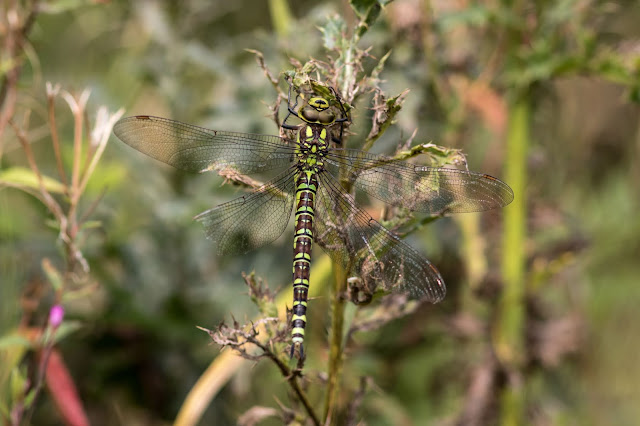I was able to take a close-up photo with the lens almost touching his wing.
Another good find was this female southern hawker.
Female hawkers at rest are not easy to find. Although in close-up their colours are striking, they are also well camouflaged. All too often they see you first and your first sight of them is as they fly off. I think I have got better at finding them, partly because I have worked out where to look and also because I now move very cautiously. This is the sort of habitat they like. Can you see it?
Or yet?
This close it is easy.
This week I found the blackest black darter I have ever seen. I suspect this is a change with advancing age as almost all traces of yellow markings have disappeared.
There are still plenty of ruddy darters,
and common darters.
There are now very few damselflies. I saw no blue-tailed, only one common blue and a handful of emeralds.
I found a forest shield bug (Pentatoma rufipes), but not in a forest.
I was very pleased to see this little bird, one I haven't seen in ages. It is a spotted flycatcher, a bird in severe decline across the country with a 90% fall in numbers since the 1970s. Thirty years ago they nested in a box outside my kitchen window but I haven't seen one at home for 20 years or so.
When I came to leave I found goldfinch feathers all over and around the gate, clear evidence that a sparrowhawk had made a kill while I was walking round. I was sorry to have missed it but the sparrowhawk would have seen me first in any case.
Today is the first day of autumn (using a meteorological definition) so I expect there will be big changes in the next week or two.






















No comments:
Post a Comment